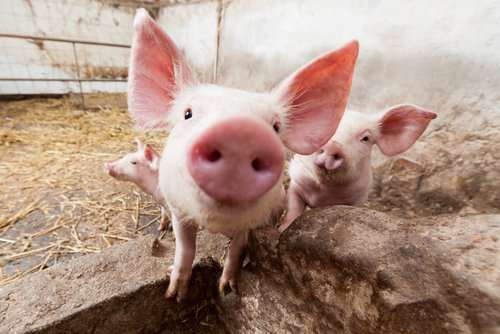Survey will continue into August
By Diego Flammini
Assistant Editor, North American Content
Farms.com
The USDA’s National Animal Health Monitoring System (NAHMS) is surveying pork producers with at least 1,000 pigs about their on-farm antimicrobial use and other stewardship practices.
The survey is part of NAHMS’ overall study, Antimicrobial Use on U.S. Swine Operations. The study has at least four main objectives:
- Estimate the percentage of production sites using and the percentage of weaned market pigs receiving specific antimicrobials in feed and/or water by reasons for use,
- Describe antimicrobial-use practices in feed and water on production sites,
- Provide baseline data (historical) on antimicrobial-use practices before the implementation of FDA policy changes (prior to 2017), which can be used for evaluating trends over time, and
- Describe antimicrobial stewardship practices on production sites with weaned market pigs or swine nursery and grower-finisher facilities.
The National Agricultural Statistics Service will contact producers within Colorado, Illinois, Indiana, Iowa, Kansas, Minnesota, Missouri, Nebraska, North Carolina, Ohio, Oklahoma, Pennsylvania and South Dakota.

Producers who agree to participate will be visited by veterinarians from the USDA’s Animal Plant Health Inspection Service, who will conduct the survey.
Pork producers should take the time to be part of the survey, according to Jan Archer, National Pork Board president.
“As an industry, we welcome this latest effort by USDA to get accurate information to the public about how America’s pig farmers actually use antibiotics,” Archer said in a release. “We’ve been good stewards of antibiotics over the years by working with our veterinarian partners and by following guidelines … Also, this survey will provide benchmark data that can help our industry as we continue on our journey of continuous improvement.”